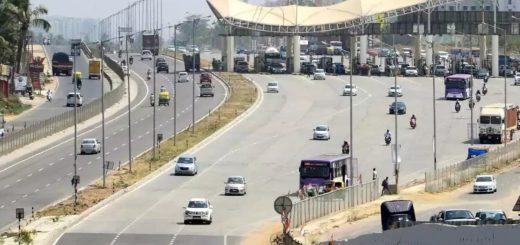The road ahead for India’s commercial vehicle industry
The commercial vehicle industry has always been closely tied to India’s economic performance. The rise in demand for trucks and buses has been indicative of economic growth, infrastructure development, and increased trade. However, the sector is no longer confined to the conventional diesel-powered trucks and buses. The emergence of LNG, electric vehicles (EVs), Hydrogen and other technological advancements are reshaping the industry.
Creating a Sustainable Trucking Ecosystem
Given the rise in demand for road freight travel and the disproportionate composition of greenhouse gas emissions, it’s crucial for medium and heavy-duty trucks to transition to alternate fuels and decarbonize the trucking industry. Green trucks, such as LNG-fuelled and electric trucks, offer a compelling alternative to the diesel trucks as they produce near zero tailpipe emissions and offer an opportunity for sustained fuel cost savings. India’s commitment to reducing carbon emissions and reliance on fossil fuels has driven the adoption of electric commercial vehicles. Companies are investing heavily in developing sustainable trucks and buses, recognizing their role in mitigating pollution and improving air quality, and keying in motion a green truck revolution.
Policy Impetus
India, aligned with the Paris Climate Agreement, is committed to reduce carbon emissions by 30 to 35% by 2030. Hence, the government is formulating policies to encourage the utilization of clean fuels, such as electric vehicles (EVs), and tightening emission standards to meet its carbon reduction objectives. The government is adhering to the Corporate Average Fuel Efficiency (CAFE) regulations, which mandated that automakers maintain an average CO2 emission level of less than 130 grams per kilometre until 2022 and subsequently reduce it to below 120 grams per kilometre.
In a significant effort to reduce vehicular pollution, the Indian government also enforced the Bharat Stage VI (BS-VI) emission standards in April 2020. These strict regulations have driven the development and adoption of advanced emission control technologies in commercial vehicles, leading to lower pollution levels, improved air quality, and increased demand for BS-VI compliant commercial vehicles.
These initiatives will not only promote sustainable transportation but will also encourage the growth of eco-friendly commercial vehicle manufacturers.
As a fuel choice, LNG for long haul and Electric for short haul in the commercial vehicle transportation segment is gradually gaining prominence on Indian roads while hydrogen powered vehicles are getting prototype. The government’s policies for faster adoption and manufacturing of Hybrid and Electric Vehicles have also played a significant role in incentivizing in their production and adoption. It has also encouraged their widespread use and boost the growth in the commercial vehicle sector. While electric two-wheelers and passenger cars have gained popularity, the commercial vehicle segment is also making substantial progress, with an expected adoption rate of 20-25% for light trucks.
Making a Quantum Leap with Technology
Globally, the nature of trucks is transitioning from being a ‘product’ to a ‘solution’. Connectivity is the sole unifying theme transforming trucks as we know them. Trucks equipped with AI and machine learning have emerged as safer and more efficient options. With advanced tech stack, these modern trucks provide real-time alerts and notifications, predictive maintenance, and operational analytics. Enhanced IoT systems have led to a remarkable 75% decrease in breakdown incidents through predictive analytics, a 30% enhancement in driver performance, and a 30% increase in asset availability by minimizing failures.
De-carbonisation of the automotive industry is a global theme, and the trucking industry is no exception. Every truck manufacturer places its product’s foundation on two primary aspects: Emissions and Efficiency, with a specific focus on fuel efficiency in this context. Advanced driving solutions are making commercial vehicle sustainable by optimizing routes, reducing fuel consumption, and minimizing emissions through smoother driving patterns. They also improve safety, reduce cost of ownership, and facilitate efficient logistics and maintenance. These technologies are creating a greener and more efficient commercial vehicle industry.
The Way Forward
The road ahead for India’s commercial vehicle industry is undoubtedly challenging yet brimming with opportunities. As the world shifts towards sustainability and technology-driven solutions, the industry must adapt and innovate. LNG, Electric & Hydrogen vehicles, connectivity, automation, emission standards like BS7, and sustainable logistics will shape the future of commercial transportation in India.
India’s commercial vehicle industry has a vital role to play in the nation’s economic growth and environmental sustainability. By embracing change and fostering innovation, it can not only navigate the road ahead but also lead the way towards a more sustainable and prosperous future. The industry’s ability to continue adoption of green trucking solutions for both long and short hauls in the heavy-duty transportation will be crucial in defining its future success and impact on the Indian economy.




Recent Comments